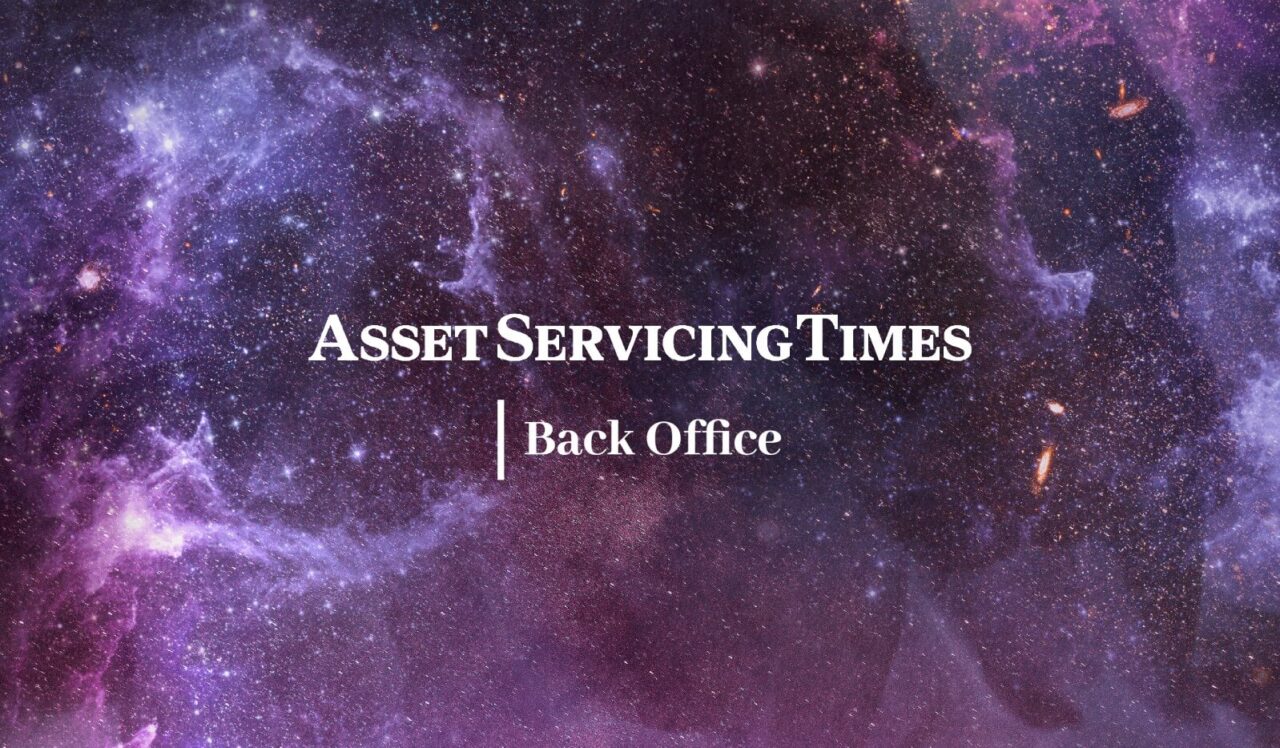Colt Younger, senior vice president head of product at Delta Data, delves into the multifaceted drivers behind the growing trend of back office technology outsourcing within the industry.
Published in Asset Servicing Times ‘Fund Services Market Guide 2025‘ starting on page 64.
The global investment fund management industry is experiencing a period of unprecedented transformation, fueled by a complex interplay of factors reshaping its operational landscape.
These include escalating regulatory burdens, the exponential growth of data volume and complexity, the relentless pace of technological innovation, increasing investor sophistication, and the growing pressure for enhanced transparency and accountability. This dynamic environment compels many firms to reassess their operational models, with back office operational outsourcing emerging as a critical strategic lever for enhancing efficiency, mitigating risks, optimizing costs, and securing a competitive edge.
Outsourcing back office functions is critical to the digital transformation of the global investment fund management industry, especially in managing costs amid the fee compression the industry is experiencing.
The driving forces behind outsourcing
The decision to outsource back office technology solutions is rarely a singular event — it is a strategic response to a confluence of interconnected factors.
These drivers can be categorized into several key areas, each demanding careful consideration:
Navigating the maze of regulatory compliance
The ever-evolving regulatory landscape poses a significant challenge for globally active investment firms. Compliance extends far beyond simply meeting local regulations. It involves navigating a complex web of international standards and differing interpretations across multiple jurisdictions. This requires specialised expertise in areas like MiFID II, AIFMD, Dodd-Frank, GDPR, CCPA, and others, significantly increasing the burden on internal resources and potentially exposing firms to substantial fines for non-compliance.
Outsourcing back office operations offers a strategic solution by providing access to pre-built, compliant technology platforms, expert knowledge of evolving regulations (including proactive monitoring and updates), and robust audit trails, mitigating the substantial costs and risks associated with in-house compliance management.
Furthermore, outsourcing firms often possess a deeper understanding of emerging regulatory trends, enabling investment firms to proactively adapt to changes and avoid potential pitfalls. This proactive approach is crucial for maintaining a strong compliance posture and avoiding costly penalties.
Harnessing the power of big data and advanced analytics
The explosive growth of data volume and velocity within the investment management industry presents both a challenge and an opportunity. It is no longer sufficient to simply store data; the critical aspect is extracting actionable insights from it.
This requires advanced analytics capabilities, including machine learning and artificial intelligence (AI), to identify patterns, manage risk more effectively, optimize investment strategies, and personalize client interactions.
Outsourcing provides access to specialized data infrastructure, including cloud-based solutions and big data platforms, enabling firms to process and analyze vast datasets efficiently and cost-effectively. Moreover, back office outsourcing partners often bring advanced analytical expertise that can help firms develop sophisticated predictive models, improve decision-making across various business functions, and create a competitive advantage through data-driven insights.
Embracing technological innovation — a constant pursuit of efficiency
The relentless pace of technological innovation necessitates continuous investment in system upgrades, software licenses, and employee training — a significant financial and resource commitment for many firms.
Outsourcing back office operations allows firms to leverage cutting-edge technologies without the significant capital expenditure and ongoing maintenance costs of in-house development. This access extends to emerging technologies like blockchain for enhanced security and transparency, robotic process automation (RPA) for automating repetitive tasks, cloud-based infrastructure for improved scalability and resilience, and AI-powered solutions for various aspects of the investment process. By outsourcing, firms can rapidly adopt and adapt to new technologies, ensuring they remain at the forefront of industry advancements and maintain a competitive edge.
Addressing the talent acquisition and retention challenge
The investment management industry faces intense competition for skilled professionals in high- demand areas like data science, cybersecurity, cloud computing, and specialized software development.
Outsourcing providers often have established training programs, ensuring that their employees possess the latest knowledge and skills, reducing the burden on internal training departments. This is especially beneficial for niche technologies where specialized expertise is difficult to find and retain internally.
Focus on cost control due to fee compression
While cost reduction is a significant benefit of outsourcing, it should not be the primary driver. The focus should be on optimizing resource allocation, allowing firms to strategically invest more heavily in core business functions like investment research, portfolio management, client relationship management, and business development. Outsourcing non-core IT functions frees up internal resources to focus on strategic initiatives that drive long-term growth and competitive advantage.
Deepening the analysis of outsourcing models and their implications
The outsourcing model choice significantly impacts the success of the strategy. Several models exist, each with its own implications:
Full outsourcing
This involves transferring complete responsibility for a specific function or technology to an external provider. It offers significant cost savings and access to expertise but requires meticulous due diligence to ensure the provider’s reliability, compliance, and security capabilities.
Contractual agreements must clearly define service levels, performance metrics, and security protocols.
Partial outsourcing
This involves outsourcing only specific aspects of a function, maintaining some internal control and expertise.
It offers a balance between cost savings and control but requires effective coordination between internal and external teams and robust communication channels.
Co-sourcing
This involves a collaborative partnership between the investment firm and the outsourcing provider, combining internal and external resources and expertise. It leverages the strengths of both parties, but demands a high degree of communication, trust, and shared responsibility for achieving common objectives.
Infrastructure outsourcing
Leveraging cloud infrastructure offers significant scalability, flexibility, and cost-effectiveness. As cloud migration gains momentum within the industry, rather than rebuilding in the cloud, many firms are seeking cloud-based solutions from outside vendors that have personnel with skills and expertise in cloud application.
Each model presents trade-offs regarding cost, control, risk, and access to expertise. The optimal choice depends on the firm’s specific needs, risk tolerance, strategic objectives, and the complexity of the technology being outsourced.
Best practices for successful outsourcing implementation
Implementing a successful outsourcing strategy requires careful planning, execution, and ongoing monitoring. Key best practices include:
Clearly defined scope and objectives
Establishing a clear understanding of the scope of services, key performance indicators (KPIs), and service level agreements (SLAs) upfront is crucial.
These should be documented in detail and regularly reviewed.
Rigorous vendor selection and due diligence
A thorough due diligence process is essential to assess potential outsourcing providers’ financial stability, technical expertise, security protocols, compliance record, and cultural fit. This should involve multiple rounds of evaluation and reference checks. In addition, firms should consider whether a vendor supports other firms like their own, as well as the opinion of the vendor by those firms.
Robust contractual agreements
Comprehensive contractual agreements are vital to protect the firm’s interests. These should cover all aspects of the outsourcing arrangement, including service levels, payment terms, security requirements, intellectual property rights, and dispute resolution mechanisms.
Effective communication and collaboration
Open and consistent communication channels are essential for successful project management and issue resolution. Regular monitoring and evaluation of the outsourcing provider’s performance are crucial to identify any issues and ensure that the arrangement remains effective and cost-efficient. KPIs should be tracked diligently and reviewed periodically.
Strong governance framework
A robust governance framework is essential to manage the outsourcing relationship effectively. This includes clear roles and responsibilities, regular communication, and escalation procedures to address any disputes or challenges. Regular progress reviews, performance reports, and escalation procedures should be established.
Data security and privacy
Protecting sensitive client data is paramount. Robust security measures, data encryption, and compliance with relevant data protection regulations (GDPR, CCPA, etc.) must be implemented and regularly audited.
Outsourcing as a strategic imperative
Outsourcing back office technology solutions is no longer a peripheral activity — it has become a core strategic element for success in the increasingly competitive and complex investment management industry. By carefully assessing their needs, selecting reliable and reputable partners, and implementing robust governance structures, investment firms can leverage outsourcing to enhance efficiency, mitigate risks, optimize costs, and focus on their core competencies.
The key to success lies in viewing outsourcing, specifically the outsourcing of back office operations, not as a mere cost-cutting exercise but as a strategic partnership designed to drive long-term sustainable growth and competitiveness in a dynamic and increasingly demanding global market.
A proactive and well-defined outsourcing strategy is, therefore, essential for navigating the challenges and capitalizing on the opportunities presented by the evolving landscape of the investment management industry. It requires an experienced and trusted partner to ensure a successful and capable digital transformation of investment management back office operations.
At Delta Data, we specialize in delivering software solutions that streamline and simplify investment fund back-office operations, enabling greater efficiency, reduced costs, and a focus on core business. With our proven expertise, we help firms navigate digital transformation and turn back-office outsourcing into a strategic advantage.
Contact us today to learn how we can partner with you for long-term success.

Colt Younger
Senior vice president head of product
Delta Data

